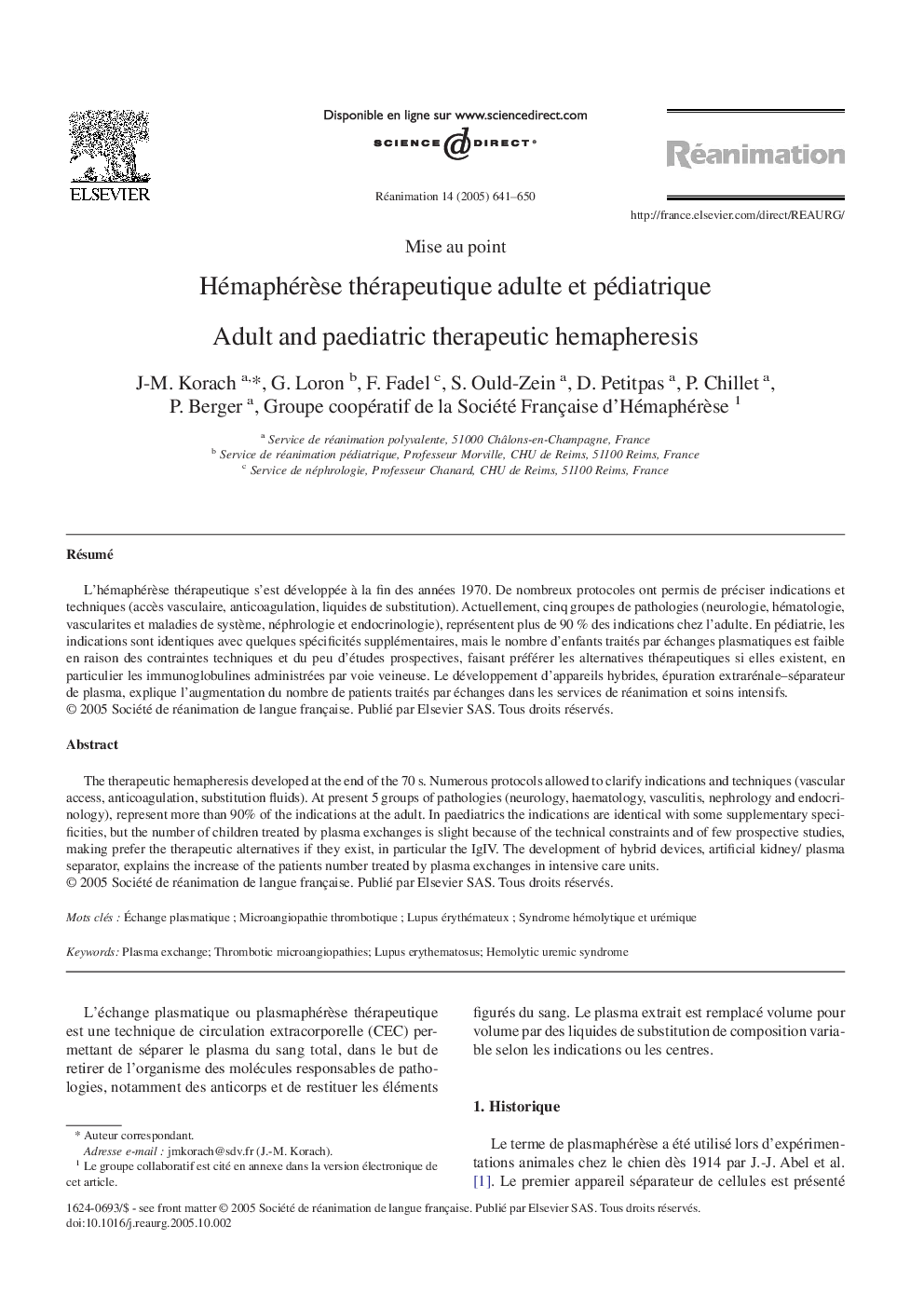| Article ID | Journal | Published Year | Pages | File Type |
|---|---|---|---|---|
| 9045074 | Réanimation | 2005 | 10 Pages |
Abstract
The therapeutic hemapheresis developed at the end of the 70Â s. Numerous protocols allowed to clarify indications and techniques (vascular access, anticoagulation, substitution fluids). At present 5 groups of pathologies (neurology, haematology, vasculitis, nephrology and endocrinology), represent more than 90% of the indications at the adult. In paediatrics the indications are identical with some supplementary specificities, but the number of children treated by plasma exchanges is slight because of the technical constraints and of few prospective studies, making prefer the therapeutic alternatives if they exist, in particular the IgIV. The development of hybrid devices, artificial kidney/ plasma separator, explains the increase of the patients number treated by plasma exchanges in intensive care units.
Keywords
Related Topics
Health Sciences
Medicine and Dentistry
Emergency Medicine
Authors
J-M. Korach, G. Loron, F. Fadel, S. Ould-Zein, D. Petitpas, P. Chillet, P. Berger, Groupe coopératif de la Société Française d'Hémaphérèse Groupe coopératif de la Société Française d'Hémaphérèse,
